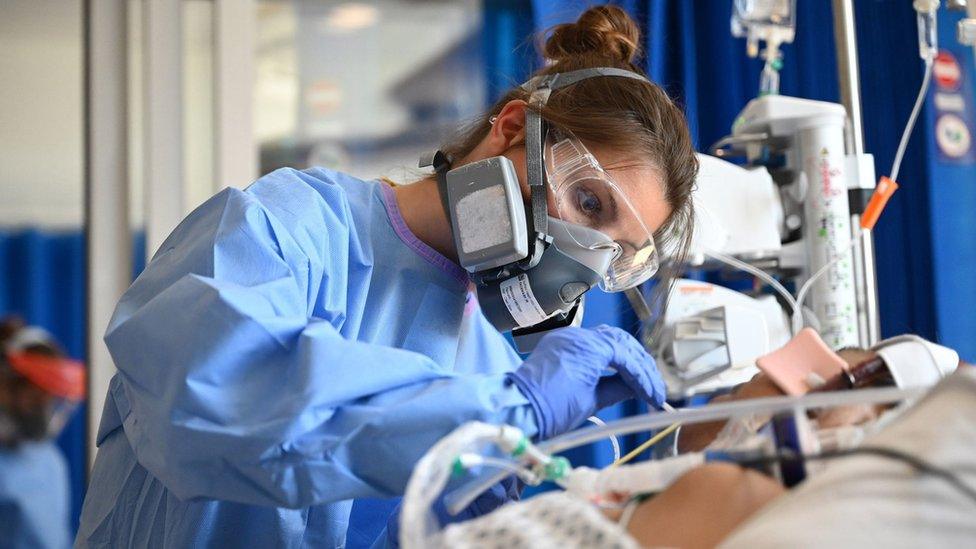Coronavirus: Behind each statistic, there was a life
- Published
As the hundreds of Covid-19 deaths in the UK became thousands and then tens of thousands, it's sometimes overlooked that behind each statistic lies a person's life.
Here three families share their memories of the people they've lost with the virus.
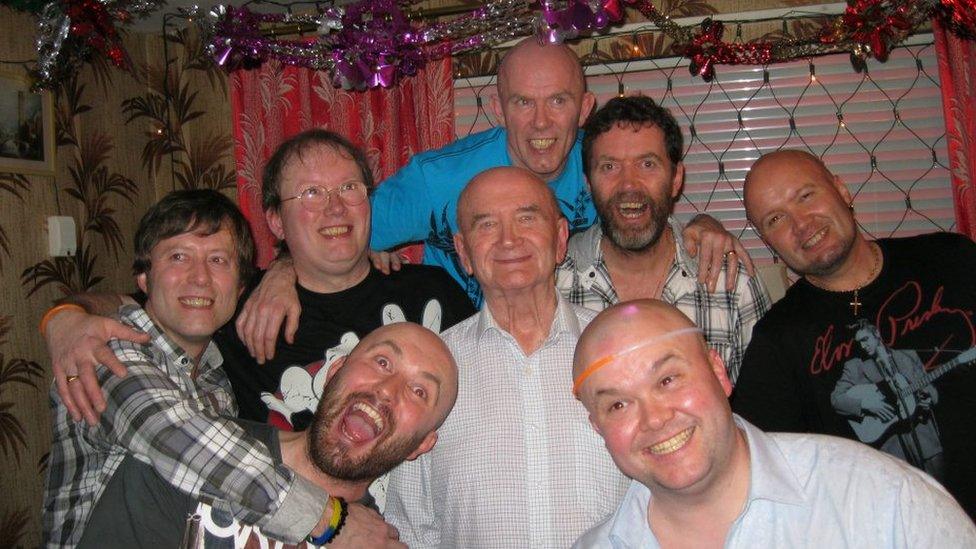
Thomas Fox with seven of his sons
Thomas Fox loved to sing.
On Sundays he would come home to his wife and kids, put on the Fidelity record player and accompany Nat King Cole.
He also loved a drink - one of his main tipples being Joseph Holt bitter. You'd find him in a pub dressed in a suit, belting out a tune to entertain everyone. One of his favourites was Here In My heart by Al Martino.
"He was a great singer and he loved it," says his son Alan, 56. "As he got older sometimes he couldn't hit the note. So he'd get to a certain point and be like, 'Right that's all you're getting now'. That's what one of his lines was."
Thomas was a proper Salford character who didn't suffer fools. To family and friends he was Tommy or Foxy, to anyone else: "Mr Fox".
A lifelong Salford resident, Thomas was father to eight sons - Tony, David, Ronny, Danny, Andrew, Alan, Richard and Robert - and worked in a number of jobs to provide for them, including as a miner.
"Everybody would ask him to sing"
When his wife May was working night shifts at a care home, Thomas would step in as family cook. It didn't always go to plan though.
"Everything in the pan was green," says Alan recalling one occasion. "Green potatoes, even the carrots and the meat. He'd put mint in it. We both sat down and my mate just looked at it and said, 'No you're OK, I'm not hungry'. But dad said, 'You're eating it'.
"He sat with us so in the end… Terry never came again."
Losing May in 2002 was hard, but Thomas soldiered on into old age - cooking, cleaning, keeping house.
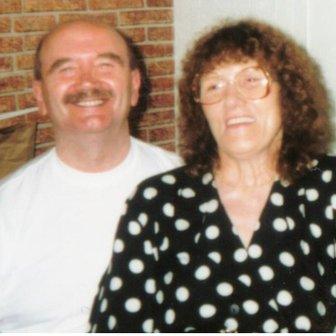
Thomas and May, who died in 2002
"I expected him to live until he was 100… get a telegram off the Queen so he could send it her back," Alan laughs. "He wasn't really a royalist."
Thomas died on 6 April, aged 92.
"I want my dad to be remembered as one of Salford's great characters," says Alan. "A good singer and a good father."
While the elderly at greater risk from the effects of Covid-19, others are not immune. Raj Aggarwal was 51 when he died.
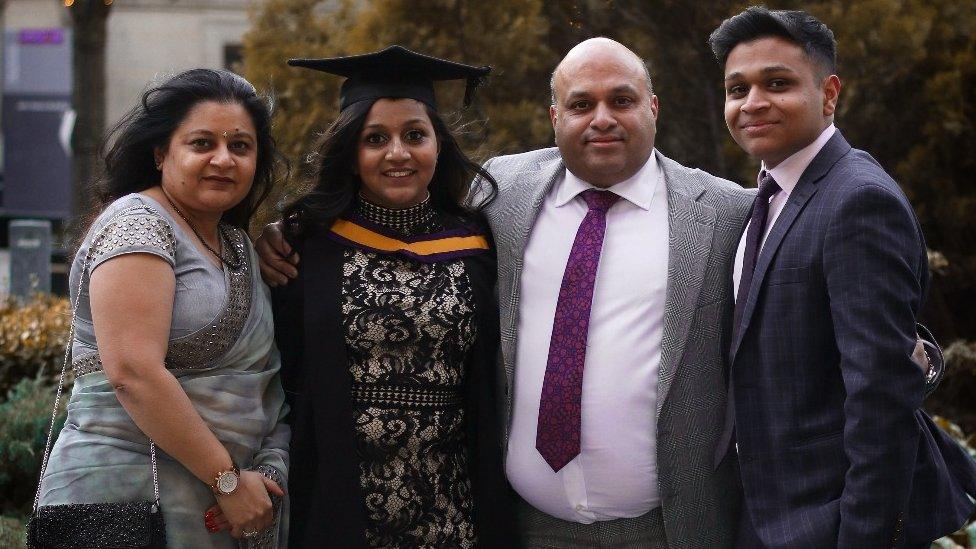
Raj with his wife Sunita and their children Ambika and Varun
His wife Sunita was with him until the end - allowed, with their son, to be at Raj's bedside to say their farewells.
Sunita remembers the first time she set eyes on Raj. She "knew he was the right one". The pair met through an arranged marriage but dated for a year before they wed.
"He was such a romantic," says Sunita, 48. "He would always be sending me a tape of his favourite songs and he'd send me presents on my first week anniversary, our first month anniversary. He couldn't do enough."
In September 2019, Raj took his wife to the Maldives to celebrate their 25th wedding anniversary and her birthday. One morning, he treated Sunita to a floating breakfast in a private pool which overlooked the pristine blue sea.
"Then he surprised me on the way back with a first-class ticket. Even then it didn't stop, he still bought me a present on the plane. It was a necklace and matching earrings."
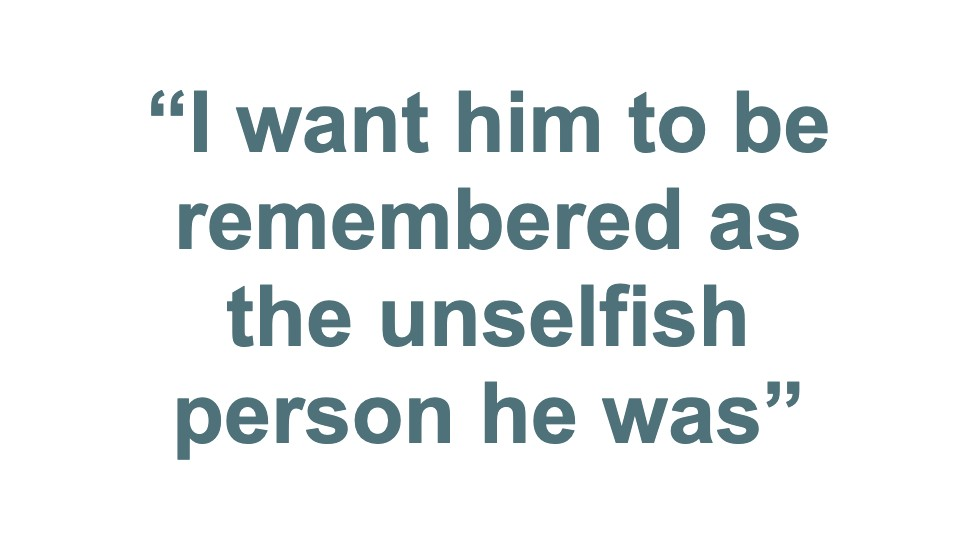
Dad-of-two Raj was a "born and bred" retailer, owning grocery stores and cafes in their home town of Leicester. He was always also generous with his time, says Sunita, donating food to homeless agencies and sponsoring the shirts of the local football team.
His last post on Facebook on 27 March showed him dropping off tea, coffee and biscuits at Glenfield Hospital for NHS staff.
"Recently if any of the paramedics came into the store he wouldn't charge them for their lunches," says Sunita. "He said, 'I'm not charging them because they're doing such a good job'."
Raj died on 9 April.
"I want him to be remembered as the unselfish person that he was," says his wife. "Full of love, smiles and energy."
Not everyone has been able to have their family around them during their final days.
Felicity Siyachitema, 51, lived alone in Southend-on-Sea in Essex.
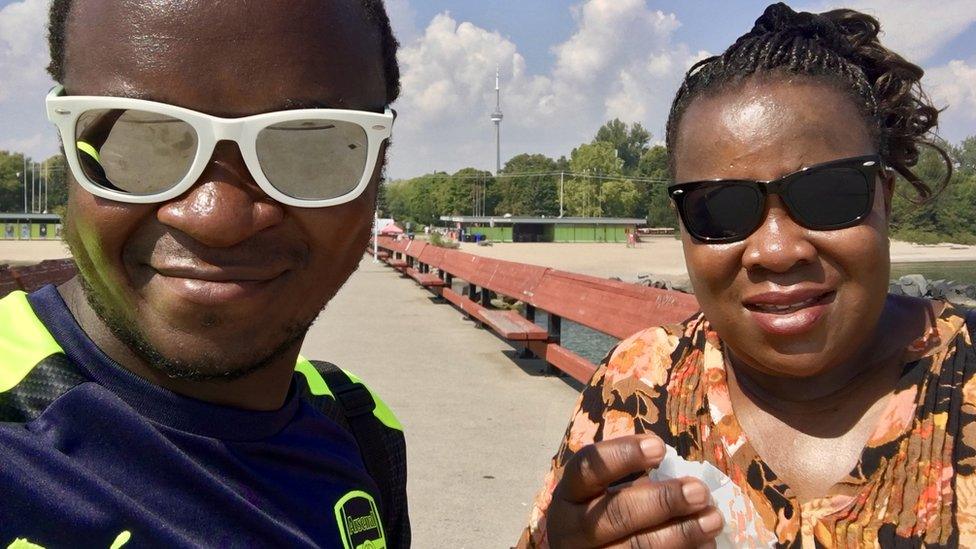
Tapiwa and his mum were both huge football fans but supported rival teams
Her eldest son, Tapiwa Nyatoro, 33, lives in Canada and was only able to get a phone call with his mum before she died.
The pair last saw each other over Christmas, when Tapiwa visited. Every evening during the trip, Felicity would make her son a traditional Zimbabwe meal of cornmeal with vegetables and beans.
"There's nothing like a meal that your mum actually makes," says Tapiwa.
Like her son, Felicity loved football. She was a Manchester United supporter, he Arsenal. Knowing it was on her son's bucket list to see a Premier League match, she surprised him on a cold, fresh 1 January night, with tickets to see a match between the teams.
"It's an experience I really cherished a lot and it's going to live with me for a long time," says Tapiwa. "That's the kind of person she was. She would do anything to make sure her family was happy."
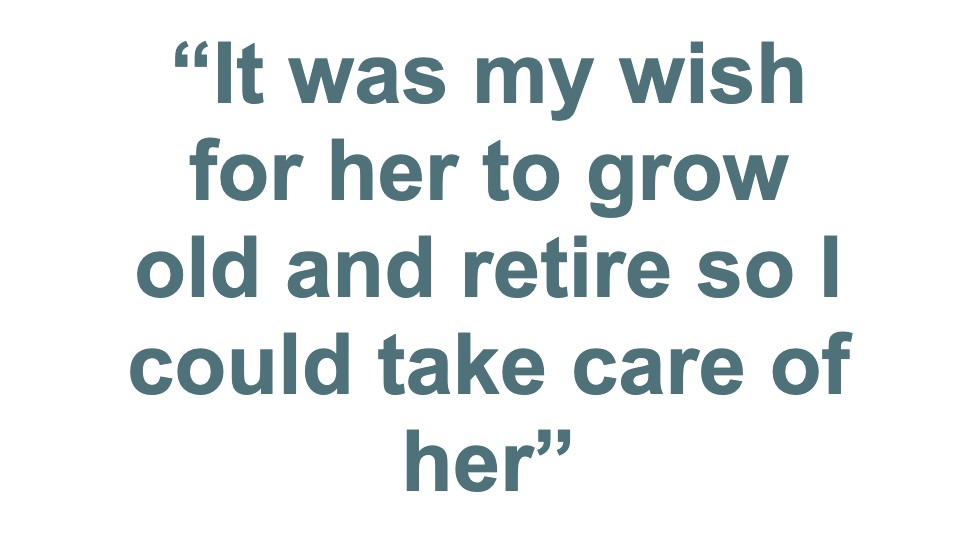
Felicity moved to the UK from Zimbabwe in 2002, fleeing her home country due to political unrest. Without family around her, she threw herself into her work as a switchboard operator at University College Hospital in London - often working extra shifts and long days.
Despite being more than 8,000km (5,000 miles) away from her home, Felicity was still the "rock" of the family.
She'd keep in touch with her younger son, Nyasha, and her mum through video chats.
"She was the glue that kept everyone together," says Tapiwa. "She provided everything for them. I have to step into that role and try to keep everyone together and keep her memory alive."
Felicity died on 21 April.
More than $5,000 (£4,000) has been raised to pay for her funeral and have her ashes sent back to Zimbabwe.
"It was always my wish for her to grow into an old woman and get to retire so I could take care of her," says Tapiwa. "It's unfortunate that's not going to happen now."

SCHOOLS: When will children be returning?
EXERCISE: What are the guidelines on getting out?
LOOK-UP TOOL: How many cases in your area?
GLOBAL SPREAD: Tracking the pandemic
RECOVERY: How long does it take to get better?
A SIMPLE GUIDE: What are the symptoms?

- Published30 April 2020
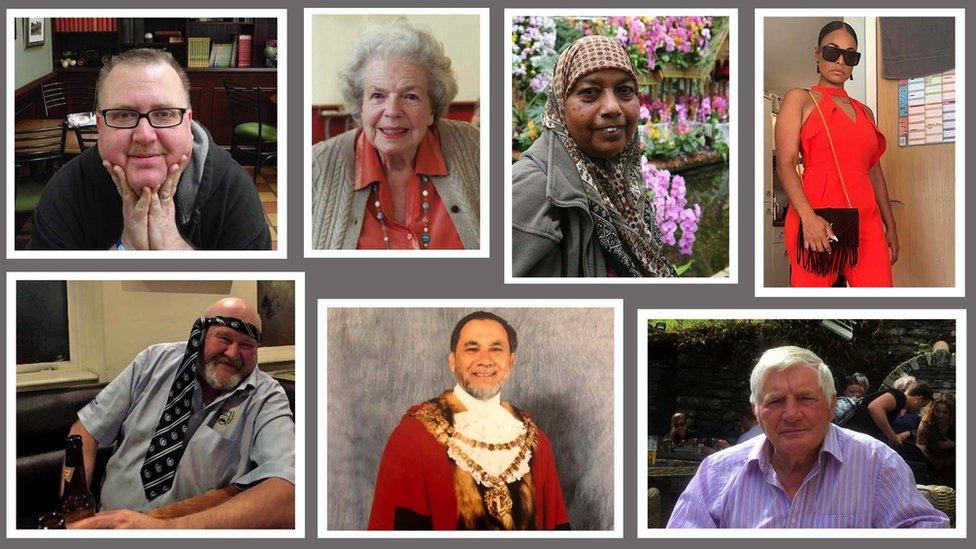
- Published28 April 2020
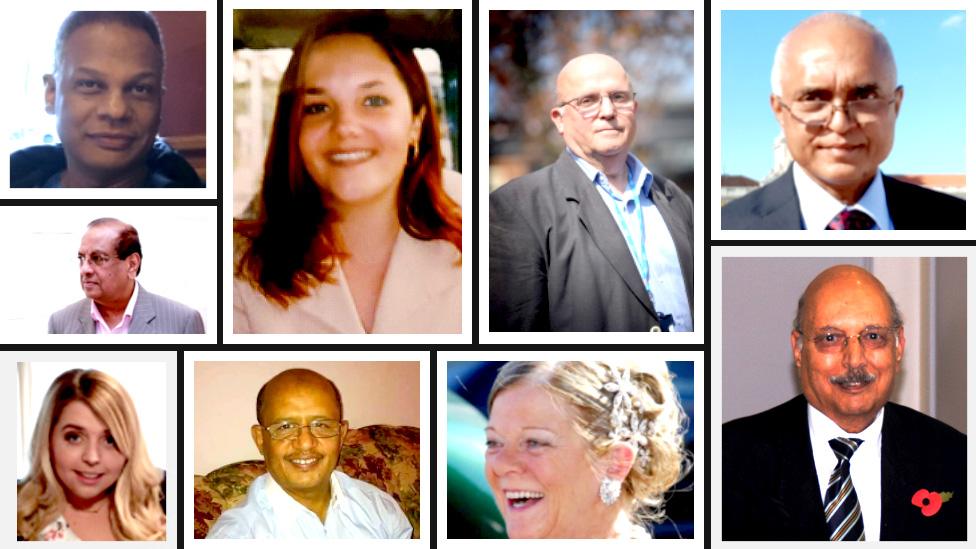
- Published6 May 2020
